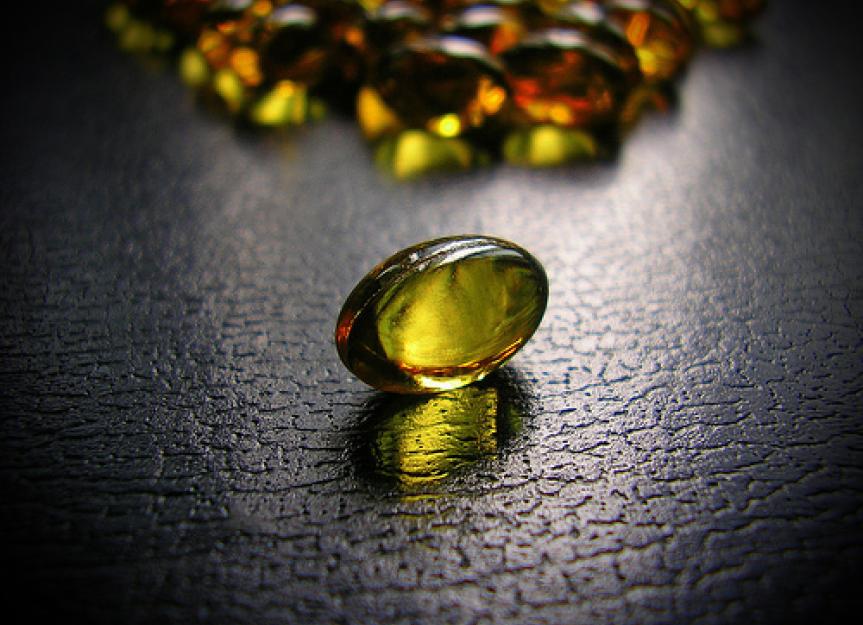Dietary Supplements for Pets?
It has become commonplace for humans to include a daily multivitamin as part of their regular diet. There are special formulations for kids, young adults, middle-aged adults, and so on. It stands to reason that just as humans can benefit from supplementing their diet with the vitamins and minerals that are not readily available in their immediate environment, so might our pets benefit from supplements that are formulated specifically for their needs. In fact, many pet owners have already discovered the benefits of supplements, whether through their own research or by a recommendation from their veterinarian.
Does Your Pet Need Supplements?
For the average dog or cat that is in good health and is being fed a complete and balanced commercial diet, there is no need for supplementation. However, if the animal has not been receiving a well-balanced diet, or has particular health needs that require additional intake of certain ingredients, it would be wise to look into supplementing your pet's diet.
A word of caution: if your pet is on a prescription pet food diet, the food may already contain the ingredients you are looking to supplement, or may have ingredients that would not work as efficiently when paired with an adverse supplement. If, on the other hand, your pet does have special health needs or is on a prescription diet, consult with your veterinarian or veterinary dietician before adding anything to your pet's diet -- including even the most benign supplements.
Choosing the Right Supplements
The most commonly used supplementary products for pets include those for strengthening the joints, protecting and conditioning the skin and hair coat, improving digestive health, and for overall well-being.
联合健康补充剂,制定typically include the ingredients glucosamine and chondroitin, which have been found to be useful in treating arthritis in both humans and animals. Supplements that are made for healing dry, flaking skin and dry hair coats include ingredients that add essential fatty acids to the body to increase moisture in the skin and hair. Fish oil is a typical ingredient in skin and hair supplements. Vitamins C and E, both well known for their antioxidant properties, can be used to reduce inflammation and may even help to maintain cognitive function in older animals.
And just as people eat foods such as yogurt with live cultures for its ability to keep the microbacterial balance of the intestines at healthy levels, and soluble fiber for aiding in digestion, some of these same ingredients can be used to make probiotic and prebiotic formulas for animals for the same use. Pre- and probiotic supplements are especially good for digestive health, but they also help the immune system to maintain a healthy response, reduce allergy symptoms, and prevent diarrhea.
Can Supplements Be Harmful?
Too much of anything, even something that is otherwise healthy, can be a bad thing. Some products may even have a toxic effect on your pet, despite their being labeled “all natural.” Only limited studies have been conducted on the safety and effectiveness of vitamin and herbal supplements on dogs and cats. Because of this, you should conduct your own research with a great deal of care, and consult with an expert in animal health before adding anything that is out of the ordinary to your pet’s diet.
Again, just as different people have different physical responses to foods and herbs, it is important to keep in mind that even if a supplement has been effectively proven to have a beneficial effect, each body is different, and what might be good for one animal is not always good for another. This is especially true for animals that are on other medications or have pre-existing health problems.
In some cases, human grade supplements can be used, but they are generally formulated in larger amounts and should only be given under a veterinarian’s guidance. Dosages can be difficult to determine, especially in consideration of very small animals, and different brands will contain different formulations of the active ingredients. Your doctor can either help you to determine the correct dosage for your pet based on its health condition, age, and size, or can point you to a formula that is especially balanced for cats and dogs.
There may also be ingredients that are added to human grade supplements that are not harmful to humans but are harmful for cats and dogs. Some examples are garlic and some types of roots and herbs. If you find that your pet is behaving differently, is lethargic, has lost its appetite, or is in any way having problems that were not present before beginning supplements, discontinue the use of the supplements and consult with your veterinarian.
What Should You Look for?
Before purchasing any type of pet health supplement, talk to your veterinarian to make sure that it is appropriate for your pet’s health. Make sure that you are familiar with the recommended dosage and with the exact formula your pet needs so that you can read the list of ingredients on the label with confidence. Finally, make sure you always purchase your pet’s supplements from a reputable and accredited company or website.
Image:Emuishere Peliculas/ via Flickr
Help us make PetMD better
Was this article helpful?
